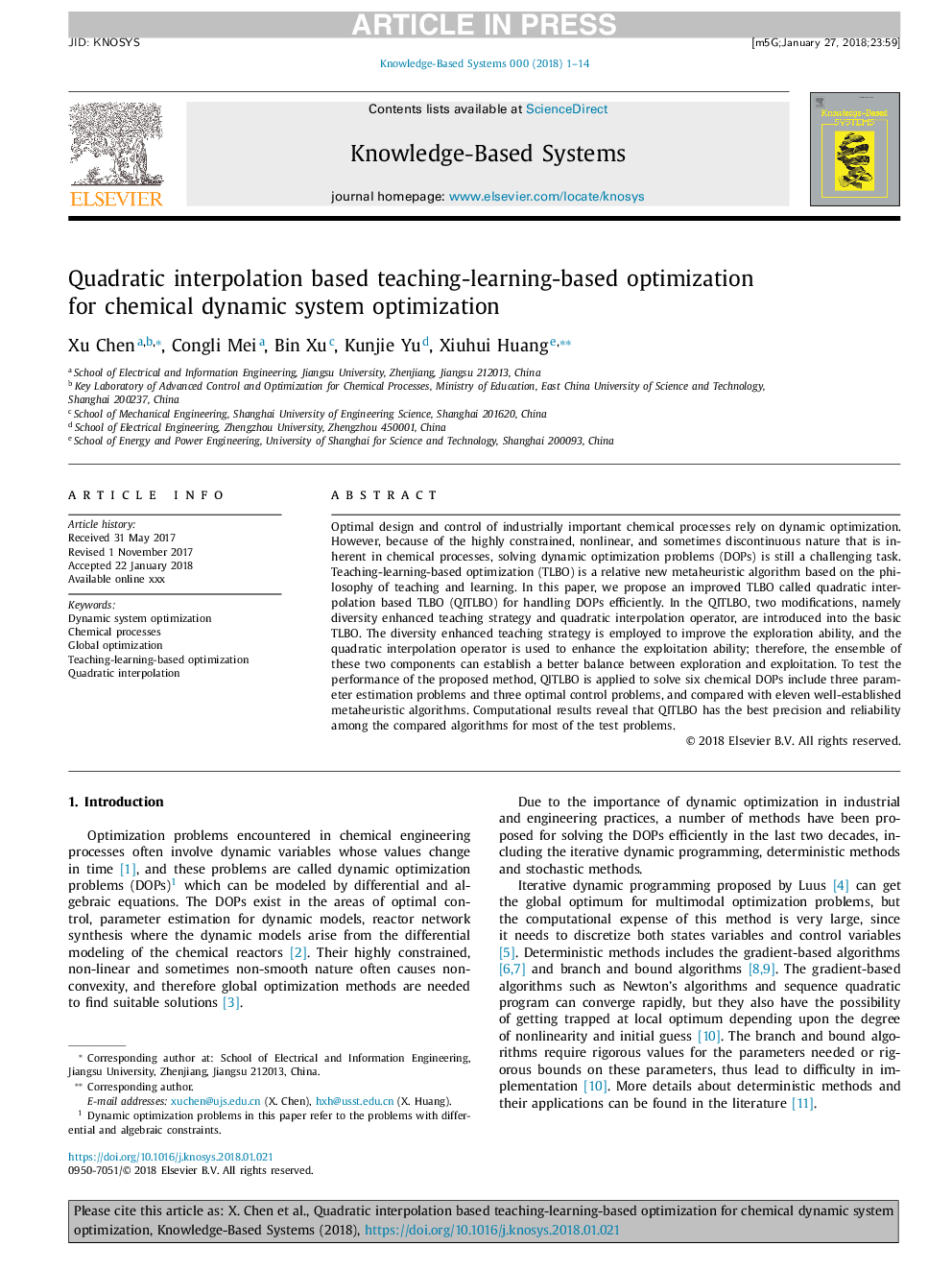ترجمه فارسی عنوان مقاله
بهینه سازی مبتنی بر یادگیری مبتنی بر درونگیری دو بعدی برای بهینه سازی سیستم پویایی شیمیایی
عنوان انگلیسی
Quadratic interpolation based teaching-learning-based optimization for chemical dynamic system optimization
| کد مقاله | سال انتشار | تعداد صفحات مقاله انگلیسی |
|---|---|---|
| 89912 | 2018 | 14 صفحه PDF |
منبع

Publisher : Elsevier - Science Direct (الزویر - ساینس دایرکت)
Journal : Knowledge-Based Systems, Volume 145, 1 April 2018, Pages 250-263
ترجمه کلمات کلیدی
بهینه سازی سیستم پویا، فرآیندهای شیمیایی، بهینه سازی جهانی، بهینه سازی آموزش مبتنی بر یادگیری، تداخل مربعی
کلمات کلیدی انگلیسی
Dynamic system optimization; Chemical processes; Global optimization; Teaching-learning-based optimization; Quadratic interpolation;

